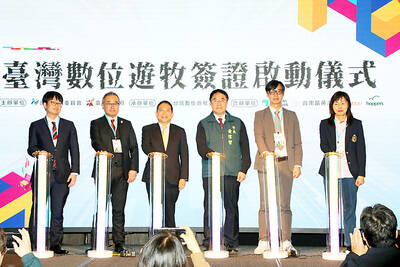The German Cabinet approved draft legislation yesterday that would take risky assets from state-owned regional banks and group them in a “bad bank” in exchange for a serious slimming down of the Landesbanken.
Berlin wants the shaky regional banks to consolidate into three institutions from seven at present by the end of next year.
The German bill would establish a federal agency for financial market stabilization (FMSA) to be based in the financial capital Frankfurt.
The FMSA would take so-called “toxic assets” and non-strategic assets off the Landesbanken’s books but would require the banks to present a “sustainable business model as well as an appropriate capitalization of the transferring credit or financial services institutes.”
Banks would also have to present detailed plans for liquidating risky positions and non-strategic operations.
The government set up a “bad bank” for private banks last month but had to come up with a separate model for the Landesbanken, which are owned by regional governments and local savings banks associations.
Under pressure from EU competition officials, the regional banks lost public guarantees that allowed them to lend at favorable rates to companies and individuals and turned to investments in areas like the US market for high-risk, or subprime, mortgages.
European Commission Vice President Guenter Verheugen of Germany has said the banks proved to be “world champions in risky business transactions.”
Heavy losses in such investments forced regional and federal authorities to draw up rescue plans, since the Landesbanken’s role in local lending is still crucial to the biggest European economy.
Berlin’s insistence on sector consolidation has been resisted by regional authorities, who are reluctant to give up control over banks that underpin local interests.

ANNOUNCEMENT: People who do not comply with the ban after a spoken warning would be reported to the police, the airport company said on Friday Taoyuan International Airport Corp on Friday announced that riding on vehicles, including scooter-suitcases (also known as “scootcases”), bicycles, scooters and skateboards, is prohibited in the airport’s terminals. Those using such vehicles should manually pull them or place them on luggage trolleys, the company said in a Facebook post. The ban intends to maintain order and protect travelers’ safety, as the airport often sees large crowds of people, it said, adding that it has stepped up publicity for the regulation, and those who do not comply after a spoken warning would be reported to the police. The company yesterday said that

NEW YEAR’S ADDRESS: ‘No matter what threats and challenges Taiwan faces, democracy is the only path,’ William Lai said, urging progress ‘without looking back’ President William Lai (賴清德) yesterday urged parties across the political divide to democratically resolve conflicts that have plagued domestic politics within Taiwan’s constitutional system. In his first New Year’s Day address since becoming president on May 20 last year, Lai touched on several issues, including economic and security challenges, but a key emphasis was on the partisan wrangling that has characterized his first seven months in office. Taiwan has transformed from authoritarianism into today’s democracy and that democracy is the future, Lai said. “No matter what threats and challenges Taiwan faces, democracy is the only path for Taiwan,” he said. “The only choice

QUIET START: Nearly a week after applications opened, agencies did not announce or promote the program, nor did they explain how it differed from other visitor visas Taiwan has launched a six-month “digital nomad visitor visa” program for foreign nationals from its list of visa-exempt countries who meet financial eligibility criteria and provide proof of work contracts. To apply, foreign nationals must either provide proof that they have obtained a digital nomad visa issued by another country or demonstrate earnings based on age brackets, the Bureau of Consular Affairs said. Applicants aged 20 to 29 must show they earned an annual salary of at least US$20,000 or its equivalent in one of the past two years, while those aged 30 or older must provide proof they earned US$40,000 in
TECH CORRIDOR: Technology centers and science parks in the south would be linked, bolstering the AI, semiconductor, biotech, drone, space and smart agriculture industries The Executive Yuan yesterday approved a “Southern Silicon Valley” project to promote the development of an artificial intelligence (AI) and semiconductor industry in Chiayi County, Tainan, Pingtung County and Kaohsiung. The plan would build an integrated “S-shaped semiconductor industry corridor” that links technology centers and science parks in the south, Executive Yuan spokesperson Michelle Lee (李慧芝) said yesterday after a Cabinet meeting. The project would bolster the AI, semiconductor, biotech, drone, space and smart agriculture industries, she said. The proposed tech corridor would be supported by government efforts to furnish computing power, workforce, supply chains and policy measures that encourage application and integration